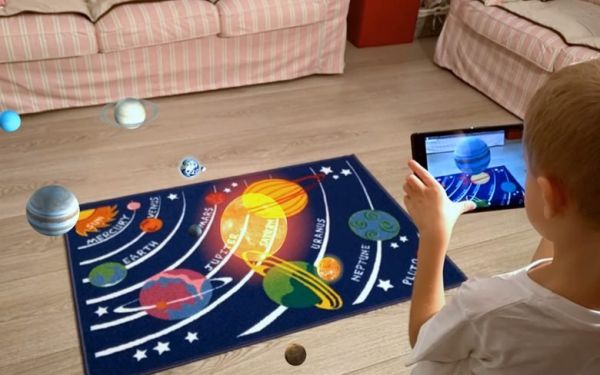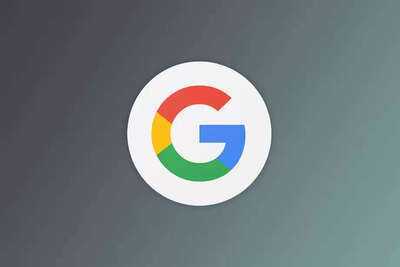
Highlights
- AI-powered career coaching has the potential to make professional development more accessible, timely, and effective for everyone.
- By combining conversational AI, reliable skills intelligence, and access to real opportunities, companies can offer employees a clearer path forward.
- The technology is ready, but its success will depend on thoughtful implementation.
Artificial Intelligence has moved beyond being a trendy add-on in human resources. In 2025, it is actively changing how people plan and grow their careers. New AI-powered tools can now provide personalized career guidance at scale, offering advice on which skills to build, which projects to take, and even which internal roles to consider. Instead of waiting months for a career discussion with a manager or coach, employees can now get relevant, tailored suggestions within minutes.
These AI systems are becoming smarter because they can combine different data sources: employee skills, company job openings, learning resources, and market trends, into one connected view. This allows the AI to offer guidance that is both specific to the individual and aligned with business needs.

At the same time, the rules around AI use in HR are tightening. The European Union’ s AI Act, for example, clarifies many employment- AI systems as “high-risk.” This means that companies need to build transparency, oversight, and bias prevention into their AI coaching tools from the very start. The timing is important: as technology gets more capable, regulators are making sure it is used responsibly.
What AI-Powered Career Coaching Actually Is
AI-powered career coaching is not simply just a chatbot built to answer questions. At its core, it can be defined as a combination of three very important layers.
The first is a conventional assistant, often built into everyday workplace tools like Microsoft Teams or Slack, that can answer relevant questions such as, “What skills would help me move from marketing operations to product management?” The AI uses company data, public career pathways, and skills frameworks to offer practical, step-by-step guidance. Because it lives in the tools employees already use, it can respond in real time and in context of actual work.
The second layer is a skills intelligence system. This is essentially a live database that maps what skills each employee has, both from their formal qualifications and from the work they have done, to the skills needed for different roles in the company. When done well, it can identify realistic career moves, pinpoint gaps, and suggest exactly how to close them. Companies like Microsoft and Workday are already rolling out more advanced skills data systems to make this possible.

The third layer is an opportunity marketplace. This connects recommendations directly to real actions, such as courses, certifications, mentoring programs, short-term projects, or open roles. Without this layer, the advice from the AI remains theoretical. With it, employees can immediately act on the guidance they receive.
Together, these three layers create something close to an “always-on” career coach, available to everyone in the company, not just senior leaders.
Benefits of AI-Powered Career Coaching
How Employees Benefit
The main attraction of AI career coaching for employees is the ability to get truly personalized advice. Instead of browsing through long course catalogues or guessing what skills matter most, workers can see clear next steps tailored to their experience, goals, and current projects. For example, if someone has just completed a project that involves data analysis, the AI might suggest learning a specific statistical method and then applying it in an upcoming business initiative.
Another major benefit is access. Human career coaches are expensive and usually reserved for executives or high-potential employees. AI tools can scale this kind of support to everyone: from recent graduates to frontline staff, without the cost growing in proportion to usage. This helps level the playing field, making development opportunities more equitable.

AI-powered coaching also helps people see realistic internal career moves. Rather than looking only at open jobs in their current field, employees can explore paths to adjacent roles, with the AI explaining which skills to add and how long it might take. This is especially valuable in industries where technology is changing roles quickly and career paths are less obvious.
Perhaps most importantly, in a job market that is becoming more competitive and uncertain, these tools give workers a sense of direction. With clear, data-driven suggestions, they can focus their energy on building capabilities that are actually in demand.
How HR and Companies Benefit
For HR leaders, AI career coaching offers the ability to support far more people without needing to hire a large team of human coaches. This frees up existing HR and learning staff to focus on complex, high-value conversations rather than routine questions.
AI-powered coaching also improves the visibility of skills across the organization. As employees keep their profiles updated, often prompted by the AI, the company builds a real-time map of capabilities. This makes it easier to identify skill gaps, plan workforce development, and staff projects quickly.

In addition, because the recommendations are connected to real opportunities, HR teams can measure the impact of development efforts. They can track whether employees are actually moving into new roles, completing stretch projects, or gaining certifications that are relevant to company strategy.
How AI Coaching Fits into the HR Technology Landscape
In 2025, AI career coaching often appears as part of a larger ecosystem rather than as a standalone tool. Some of the most effective implementations are embedded directly into collaborative platforms, where employees spend their day. For example, Microsoft’s Viva and Copilot tools now offer integrated skills data and personalized development prompts inside Teams.
Human Capital Management (HCM) systems, like Workday, are also enhancing their skills intelligence features. These allow HR to track skills across the workforce and connect them to performance reviews, mobility programs, and training plans. Learning platforms, such as LinkedIn Learning, are starting to include AI “coaches” that guide learners through the most relevant content in the shortest time.
The key to success is integration. A conversational AI without accurate skills data or access to real opportunities will give generic advice that employees may quickly ignore.

Building Trust: Compliance, Bias, and Privacy
Because career guidance can directly influence someone’s future, trust is essential. Under the EU AI Act, AI systems used in employment contexts must meet strict requirements. Even if the AI is not making final decisions, if it influences opportunities or career directions, it is considered high-risk.
To meet these standards, companies need to document how the AI works, where it gets its data, and what its limitations are. They must also ensure that there is always a human available to review and, if necessary, override AI-generated suggestions.
Bias is another major concern. Without careful monitoring, AI systems can unintentionally reinforce inequalities, for example, by suggesting less visible roles to certain groups. Regular audits, diverse feedback, and anonymized testing can help these issues before they do harm.
Privacy also needs to be protected. AI career coaches often use sensitive information, including performance feedback and career aspirations. Companies must collect only the data they need, store it securely, and make sure employees know how their information is being used. Importantly, coaching data should be kept separate from performance evaluations unless an employee agrees to share it.

Finally, transparency builds agency. When the AI gives advice, it should explain why, citing specific projects, skills, or goals, so employees can understand and trust the recommendations.
Rollout and Success
The best place to start with AI career coaching is in areas where it can make an immediate difference. For example, HR might focus on one specific career pathway that has high demand, such as moving employees from operations into data analysis. They can define clear success metrics, like how many people complete the recommended training and move into roles.
Data preparation is crucial. Skills profiles need to be accurate, and learning content should be curated rather than overwhelming. The AI should be transparent about its purpose and limitations from the start.
Once the system is live, it is important to involve managers so they can help turn AI suggestions into real opportunities. Regular feedback and audits can ensure that the system remains fair, useful, and trusted.

To know whether AI coaching is working, companies can look at several indicators. These include how many employees have up-to-date skills profiles, how quickly people move from asking advice to taking action, and whether the rate of internal mobility increases. They can also track whether employees from all backgrounds are benefiting equally.
Ultimately, the goal is not just to offer more learning, but to see measurable progress, such as promotions, successful stretch projects, and higher retention of skilled staff.
Looking Ahead
One common pitfall is launching an AI coach without connecting it to a solid skills database. Without accurate information about employees and roles, the advice will be too generic to be useful. Another mistake is using the tool in a way that feels like surveillance. If employees think their private coaching conversations are being used against them in performance reviews, trust will collapse.
Over-automation is also risky. While AI can speed up and scale advice, important career decisions should always involve human judgement. And finally, companies should ensure that early-career and frontline staff are included, as these groups often benefit the most from structured development support. Companies that start small, build trust, and focus on real outcomes, like mobility and equity, will be the ones that truly transform how people grow their careers.
-
Britain won't survive another Rachel Reeves Budget - time she did the decent thing

-
Google Account: Is someone else using your Google account? Check it quickly..

-
Over 2 Crore Fraudulent Phone Connections Blocked In India, Spoof Calls Down By 97%: DoT Secretary

-
Delhi: Fire breaks out in DTC bus near Dhaula Kuan

-
For children: Tired of being ignored by lion king, the animals of Nallamala Forest turn to democracy
